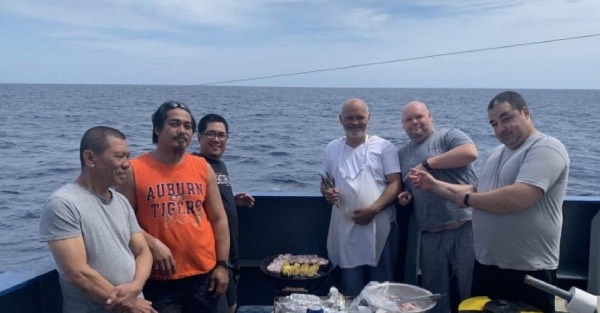Since its launch in January 2020, our Social Interaction Matters Project has been in busy progress. The Project’s aims are to support shipping and ship management companies to increase and improve seafarer social interaction and wellbeing on board, through successfully proven guidance and recommendations.
In April 2020, we kicked off Phase One of the SIM Project by conducting a survey of seafarers and maritime stakeholders. We wanted to examine the relevant drivers and barriers to the promotion of social interaction, and identify specific activities which help to engage people. Our survey received 911 responses, including over 700 from seafarers. Along with findings from a background literature study, we gathered the survey results to produce our Phase One report, which was released in January 2021.
In November 2020, two months prior, Phase Two ‘The SIM Trials’ began. We partnered with a number of shipping companies to investigate the impact (or lack thereof) of social engagement initiatives on crew living and working on board their vessels. A total of 21 vessels from 10 different companies participated in the trials, which began by selecting a Shipboard and Shoreside Ambassador to represent each vessel. The Shipboard Ambassadors each completed daily and weekly logs to record the details of life on board, and to describe any social activities that had taken place and the impact of these on overall crew mood. Each crew member was also encouraged to complete a weekly online survey which asked confidential questions about their individual wellbeing and mood.

Every week, the trial vessels received an e-mail newsletter from ISWAN which shared photos and details of activities taking place on the other ships, and cultivated an atmosphere of interconnectedness between the different crews. Vessels were also encouraged to enter various inter-ship competitions organised by the ISWAN team. Alongside this, the team was in regular contact with both the Shoreside and Shipboard Ambassadors throughout the trials, and readily available for any vessels who needed support.
After the Phase Two trials ended, we conducted exit interviews with each of the SIM Ambassadors, and held an ‘Ambassadors’ Round Table’. The round table offered Ambassadors the unique cross-company opportunity to share their insights and experiences from the trials and beyond with one another, and was a tremendous chance for us to gather further observations and recommendations for our final report and guidance.

For the SIM Project’s final Phase Three, early next year we will be releasing an industry-targeted report on our findings, as well as implementable guidance and recommendations for facilitating improved social interaction on board based on these findings – along with vessel specifics such as the frequency of port calls, size and type of vessel and voyage patterns. Both publications will be appropriate for both shipping and ship management companies, as well as individuals worldwide, who are invested in working to improve the overall wellbeing and welfare of their crew. Looking to the future, we plan to explore key themes that have emerged from our research, such as the link between fatigue, safety, social interaction and wellbeing.









































